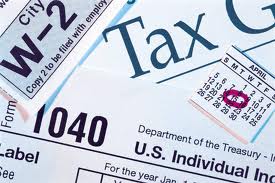Thanks to Mom on Dealz for sharing her new series, Ask an Accountant! Sharon is married to an experienced accountant, so if you’re looking for a professional to help out with taxes this year, give him a call.
Recently, I have received numerous requests for assistance in “setting up” blogs from a tax perspective, so I figured I would address this to give a basic understanding of the options that are out there & compare them.
Let’s start with the need behind organizing the entity.
1. Taxes – a necessary part of our economy…nobody likes to pay them, but without a tax structure, we would not be where we are today as a country.
2. Liability protection – we want to protect and seperate our personal assets (homes, vehicles, bank accounts) from any business activities in the event there is a problem, error, or mistake another person or entity can hold you liable for. You do not want the legal system to use these personal assets for retribution.
Here are the different types of entities:
Let’s start with the sole proprietor. From an administrative standpoint, this is the most simplistic. There are no additional tax forms, as the income is reported on your 1040, however, this essentially is an extension of you personally, and any income from these operations are considered Self Employment income and come with an additional Self Employment Tax in addition to your regular income tax rate. Self Employent Tax can be estimated at approx. 15% of the self-employment income. The drawback here is there is no liablitity protection in the event of litigation.
The next option, is an LLC. They have become a very popular business form for new entities, and many existing entities have converted to this form. They exist in some form in every state. They combine limited liability features of corporations and pass through characteristics of partnerships and S corps, but are more flexible than S corps. For federal tax purposes, LLC’s are treated as partnerships (unless they elect otherwise). There is one exception, a Single-Member LLC, which retains the liability protection, but is taxed as a sole-proprietor. The profit from these entities also trigger Self-Employment tax.
Finally, Corporations: The S Corp (so named from a chapter of the tax code) is a regular corporation with regular limited liability, whose owners elect “pass through” status meaning the corporation itself pays no tax. The profit is passed through to the owner and the tax is paid on the owner’s 1040. Corporations whose owners don’t choose to make the federal S corp. election-that choose to be taxed as corporations-are called C corps and pay tax a higher corporate tax rates. The benefit here is there is no self-employment tax on the profits.
*Please keep in mind this post is for informational purposes only and answers given are very general. Many things depend on individual circumstances. Please contact your personal accountant or financial advisor for your particular situation.








